
After fleeing war, Ukrainian children in alternative care build their lives over again
10/09/2024
At the age of 53, Halyna has faced numerous hurdles in her lifetime, but her love for children has never faltered. Until May 2024, she called Zolochiv, a village in Ukraine’s Kharkiv region, home. Now, she is rebuilding her life in a new city with six children – five of whom she fosters.
Halyna first became a foster mother in 2011, when she welcomed three-year-old Yehor into her home. Seemingly unable to have biological children, she was determined to offer a warm and loving home to any child in need.
“Yehor then asked for a brother. So we filled out a form online, and they suggested Hennadiy, who was 16 at the time. Soon after, the regional Child Affairs Department called with unexpected news – Hennadiy had three sisters, and they couldn’t be separated. That’s how our family grew.”
Halyna (53)
At the family’s home in Zolochiv, each child had their own space, belongings and daily chores. But the escalation of the war shattered their usual lifestyle. The children had to adapt to a harsh new reality, amid shelling and the transformation of their cellar into a makeshift bomb shelter.
“When Yehor first came under fire, he knew exactly what to do – not to hide under houses or trees, but to find some kind of trench in the ground,” says Halyna. “He didn’t panic and did everything right, so it saved his life.”
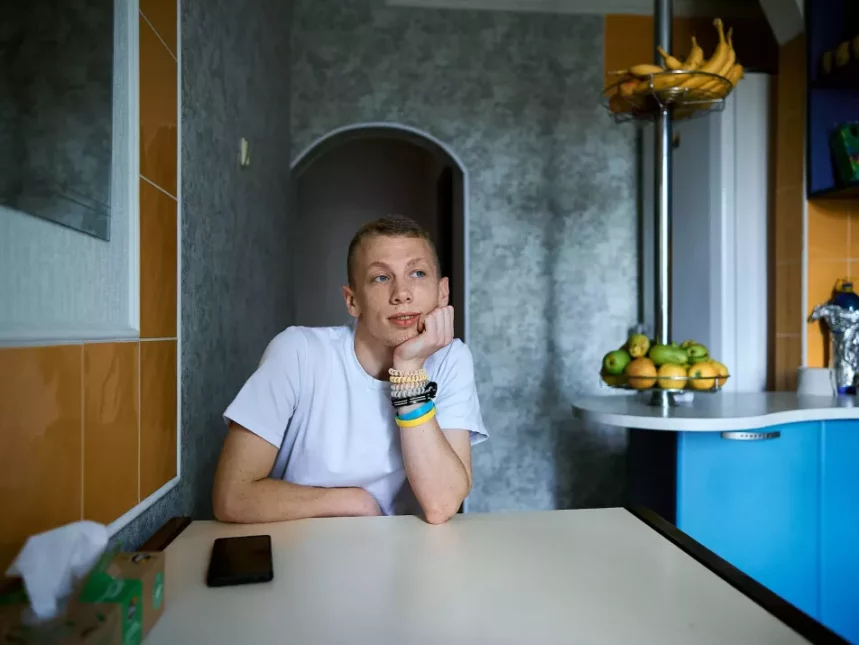
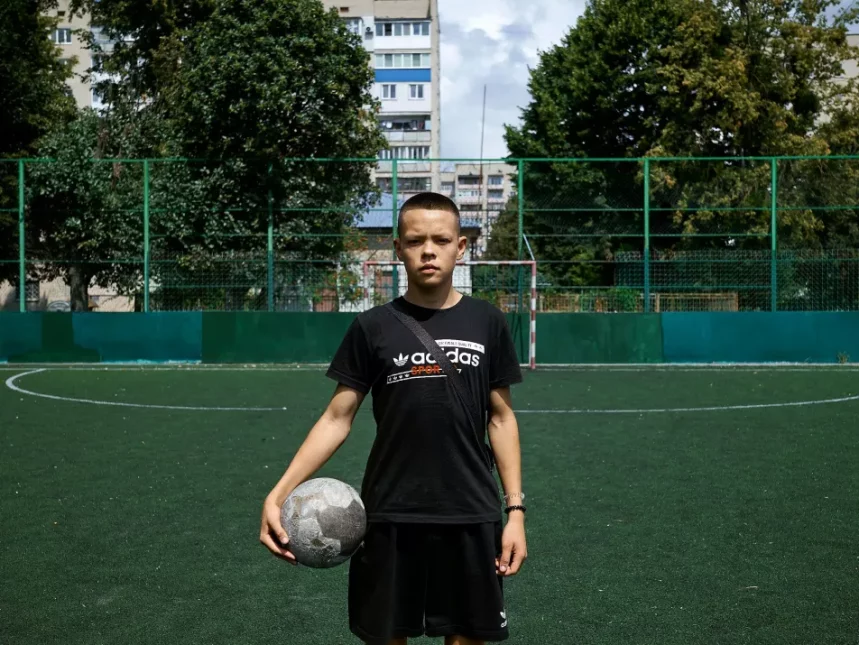
“It was terrifying to abandon our home”
In early May 2024, the Kharkiv Regional State Administration announced an urgent evacuation of residents from border areas due to escalating hostilities. A total of 77 alternative care families with 123 children (61 girls) were evacuated. Among them were children placed in foster families and family-type group homes. Thirty-seven of these families, including Halyna and her children, left the Kharkiv region for Volyn.
“It was a mandatory evacuation due to the worsening security situation. It was terrifying to abandon our home, not knowing where we would go or what awaited us. And with six children it was even more challenging, I kept asking myself: ‘Where would I take them?’”
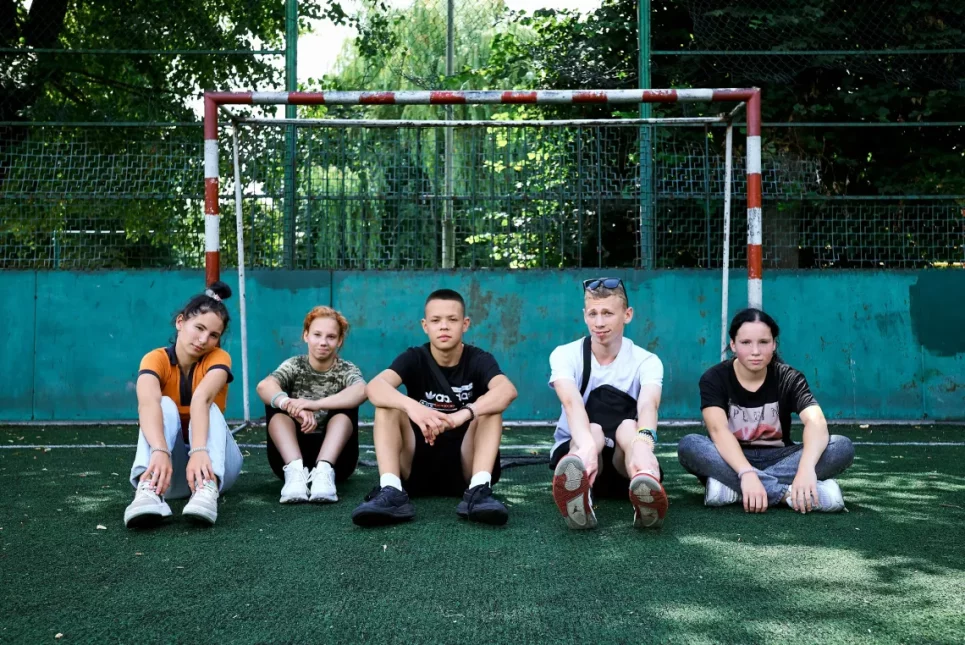
The Kharkiv Regional State Administration organized the family’s evacuation to Kharkiv City. Then, the United Nations Children’s Fund (UNICEF), in collaboration with the organizations ‘Partnership for Every Child’ and ‘Dzherelo Educational and Rehabilitation Center’ as well as the Child Affairs Departments in Volyn and Kharkiv, assisted the family during and after their relocation to Volyn.
“We were taken to a transit hub and immediately began receiving cash assistance and humanitarian supplies,” says Halyna, gratefully. “We were given everything we needed – food for each family member, pillows, blankets. Then we were placed in a dormitory. Psychologists also worked with us.”
“The children finally had a chance to relax”
The move to Volyn was daunting and filled Halyna’s children with fear. But when they saw the lake near their temporary accommodation, their worries began to fade.
“My children are very active,” their mother explains. “As soon as they saw the water, they dropped their unpacked bags and ran off to swim. The children finally had a chance to relax. We’re grateful to the volunteers and psychologists who supported us.”
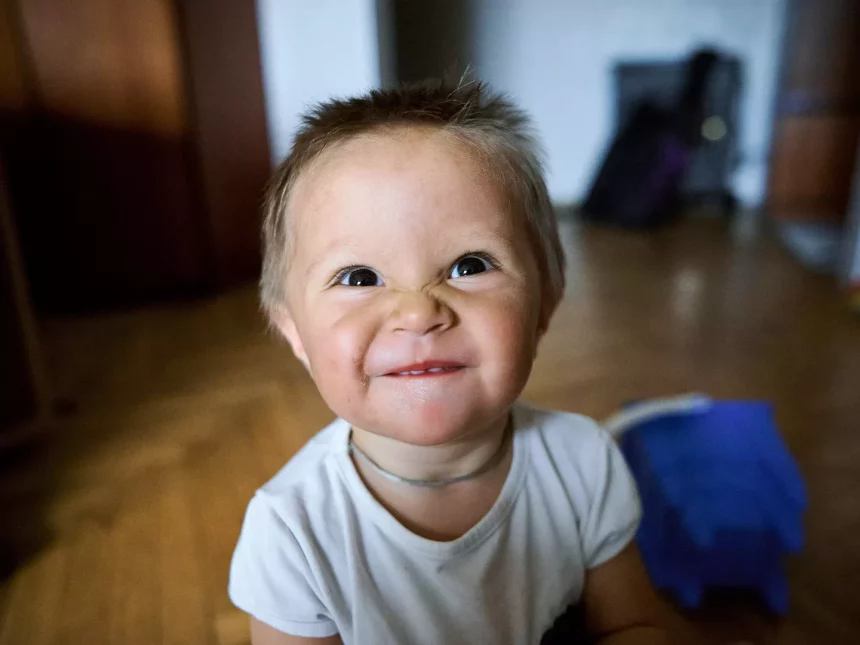
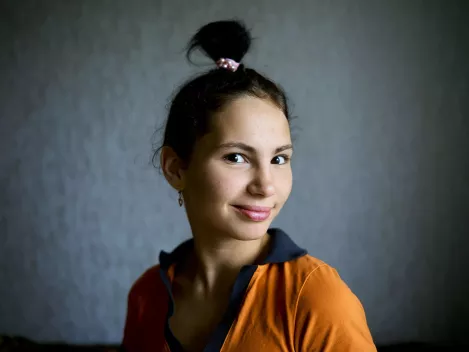
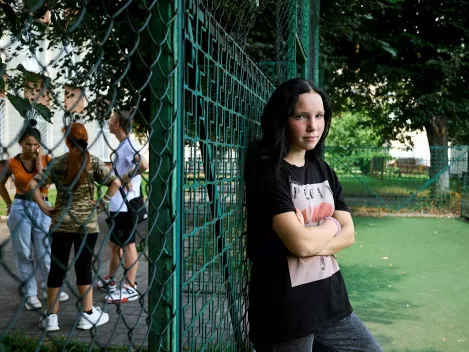
In early July 2024, Halyna and her children were relocated to the city of Lutsk. With support from UNICEF, the Dzherelo Children’s Rehabilitation Centre helped them to rent a three-room apartment. Within a month, they had settled in, turning the apartment into home.
The children now play together at the nearby playground and have already made new friends in the neighborhood. The girls are interested in taking boxing lessons, while the boys are on the lookout for a football club to join. They are also in the process of choosing a school to attend in September.
Halyna, however, remains anxious about the future.
“With UNICEF’s cash assistance, I bought clothes for my children because we left almost everything at home,” she says. “In the village, we are used to different conditions and prices. Here, we have to save money. I’m worried about the start of school in the autumn. Two children will be in ninth grade and two more in eleventh grade. We will need stationery, a laptop for studying and warm clothes.”
“We work closely with these families”
In Lutsk, the family is being supported by Maryna Burmysheva, a social worker from social services. Maryna says Halyna is a dedicated and caring guardian, who is open to the children, communicates with them about what’s happening and why, and is actively involved in their education. Despite two years of distance learning, the children have a solid level of knowledge, mainly thanks to Halyna.
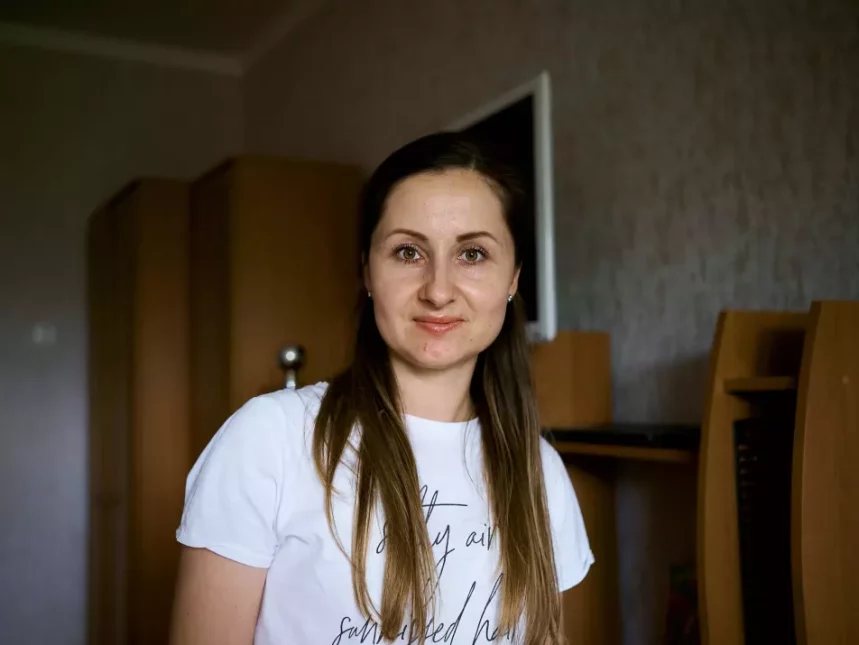
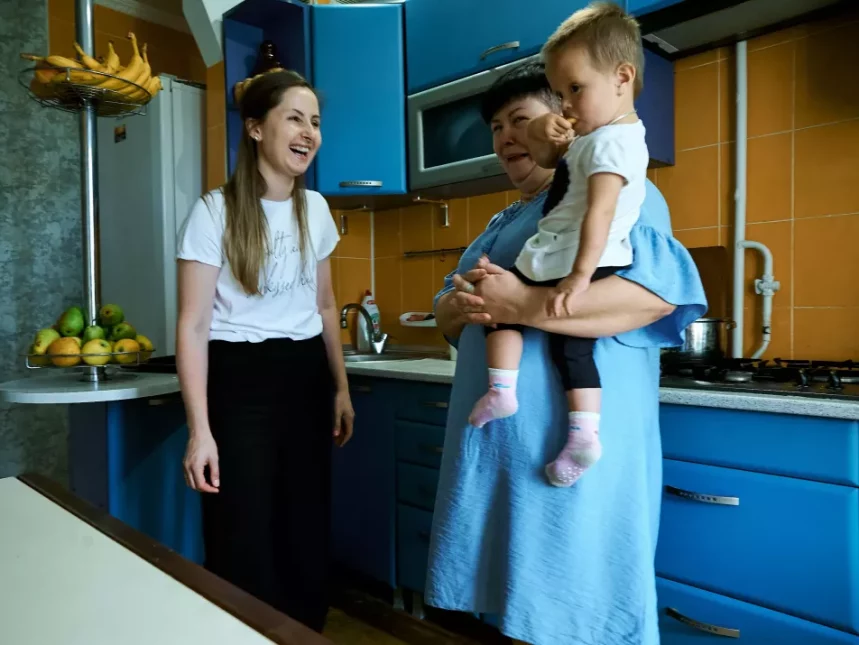
According to Maryna, enrolling children in school is a top priority for internally displaced families. Returning to full-time education helps children adapt more quickly to their new environment by providing them with a social circle and a sense of normalcy. This transition also aids in healing the trauma associated with displacement and the events leading up to it.
Support from social services is particularly crucial for families who have children in alternative care, who may have faced additional challenges during displacement.
“We work closely with these families,” says Maryna. “Our department has psychologists who provide support to guardians, foster parents and children. Everything we do is in the best interest of the children, because safety, peace of mind and mental health within the family are what matter most – ultimately, it’s about their future.”
UNICEF has been providing support to displaced children and families across Ukraine, including during evacuation and upon arrival at their new destination. The support includes cash assistance, basic needs (sheet, towel, pillows etc.), hygiene products, psychological support and other services based on individual needs assessments. This crucial support helps to meet their immediate needs during the challenging period of displacement.
Family-based care, including foster care, is also supported through the ‘A Family for Every Child: Development of Family-Based Care’ project. This initiative is jointly implemented by UNICEF, Partnership “For Every Child”, the Ministry of Social Policy of Ukraine, the National Social Service of Ukraine, and the Coordination Centre for the Development of Family-Based Care and Childcare, with financial support from the European Union and the Austrian Development Agency (ADA).
Stories
-
Katarina Mathernova: If Ukraine had a human face and a human spirit, it would be 10-year-old Roman Oleksiv
-
A regional mission to drive social entrepreneurship: the story of Ksenia Kosukha
-
EU restores safe water supply for 100,000 Ukrainians affected by war
-
Promoting IT during the war: Lviv IT cluster and how EU4Digital helps
-
Frontline digitalisation: Kharkiv IT Cluster collaborations
-
How EU4Youth is driving opportunity and success among young Ukrainians